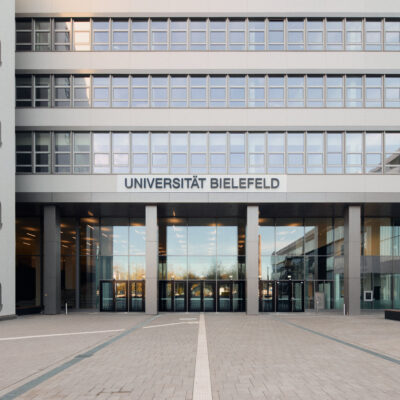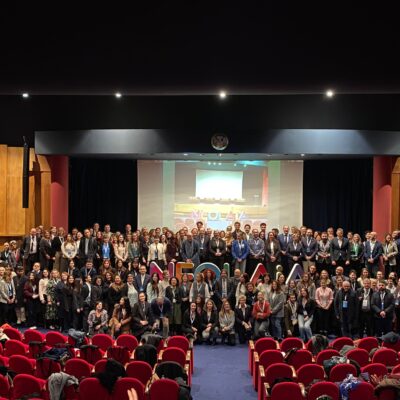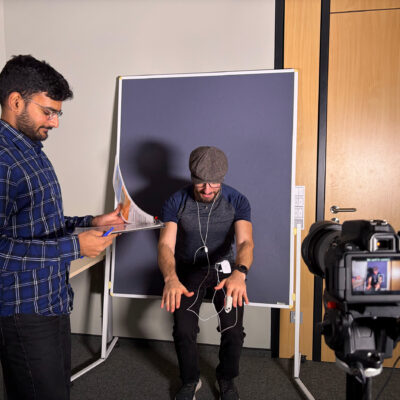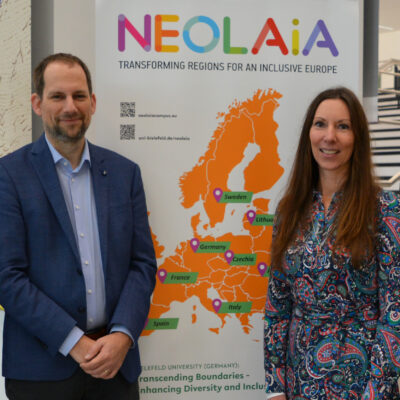Germs like bacteria and viruses are increasingly resistant to the medicines used to kill them and treat infections, including antibiotics. So called “antimicrobial resistance” (AMR) is one of the biggest contemporary threats to human and animal health, food security and sustainable development globally, also known as the “silent pandemic”. A cross country collaboration of an international team of researchers from Bielefeld University and Torrens University Australia in Adelaide aims to investigate whether equity and gender is being taken into account in efforts to tackle AMR in Germany and Australia.
Associate Professor Clare Littleton, Deputy Director of the Centre for Healthy Sustainable Development (CHSD) at Torrens University Australia, is being hosted at Bielefeld University from March to May 2023.
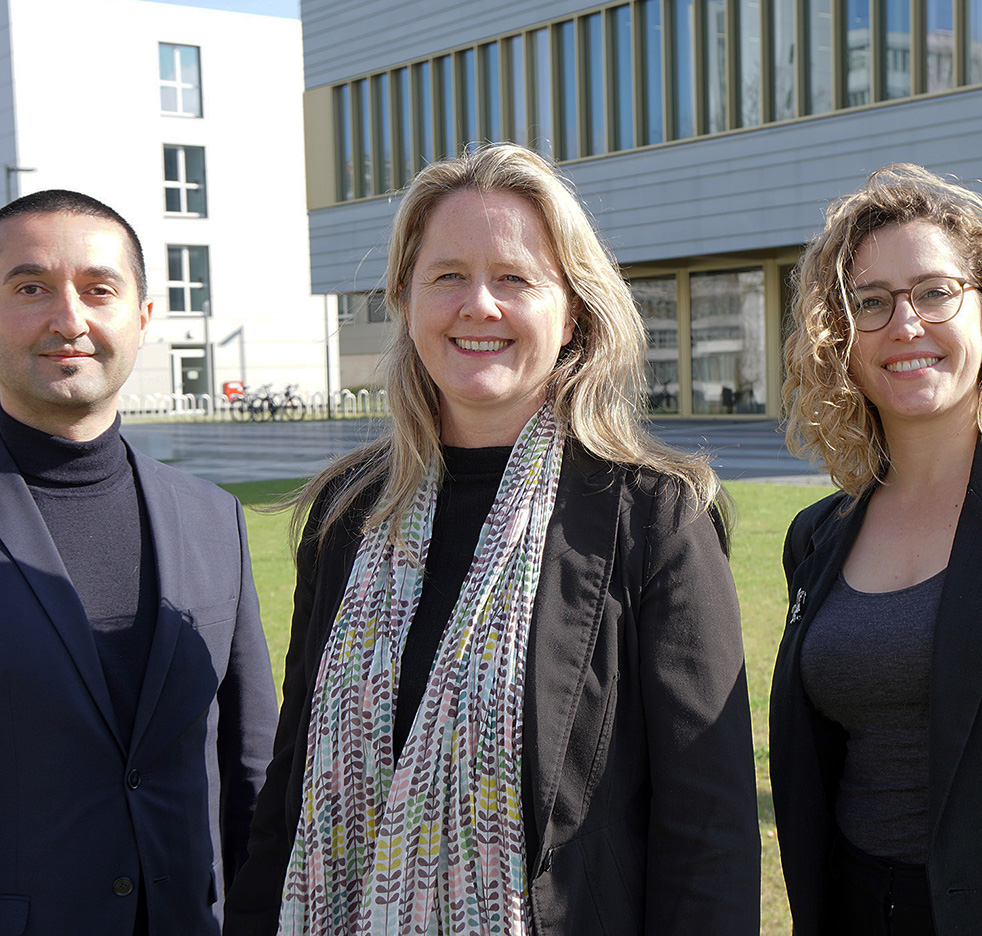
© Bielefeld University
Clare Littleton conducts research in the area of public health with a specific focus on children, the social and political determinants of health, health equity, education, and public policy. Her research focusses on addressing complex policy issues through cross disciplinary research, specifically public health and political science. Through her research she aims to address the UN Sustainable Development Goals.
During her stay at Bielefeld University, Assoc. Professor Littleton is working closely with research associate Victoria Saint and Professor Dr Kayvan Bozorgmehr of the Department of Population Medicine and Health Services Research (AG2) in the School of Public Health in Bielefeld, on a range of research, teaching and other strategic initiatives. Their main research project explores the extent to which national policies to tackle antimicrobial resistance in Germany and Australia include a focus on health equity, the social determinants of health and gender.
This cross-country study includes a comparison of policies and stakeholder perceptions, providing real-world insight into the AMR policy environment and the perspectives of policy makers and other key actors on formulating equity-oriented AMR policy in the future.
Victoria Saint and Clare Littleton will be presenting the preliminary findings from the study at the 17th World Congress on Public Health in Rome on 2-6 May 2023. Held every two to three years, the World Congress is a key international forum about public health issues at national and global level, with more than 3000 delegates expected to attend.
Assoc. Professor Clare Littleton says: “Our study is important because we are looking at antimicrobial resistance from a social rather than “bugs and drugs” perspective. We want to know how the German and Australian governments are addressing AMR, taking into consideration how population groups in vulnerable situations may be more or differently impacted. Women and children, migrants and refugees, or those in precarious work environments may face specific risks and challenges. Therefore, government strategies need to also address social factors such as socio-economic status, gender, and access to healthcare, which are known to reduce health inequities and save lives.”
During her time at Bielefeld University, Assoc. Professor Littleton and Victoria Saint are also organizing or participating in a range of other activities. For example, in March they attended at the international workshop “Evidence-based benevolence? The role of philanthropic organizations in global public policies”, held at the Center for Interdisciplinary Research (ZiF) and facilitated the closing session. They also took a group of Bielefeld Master of Public Health students to an event co-organised with BUKO Pharma-Kampagne and World house Bielefeld on “Universal Health Coverage and the Role of Civil Society”, with international guest speakers from Ghana and Peru.
Strengthening cross-country, cross-institutional partnerships
This is Assoc. Professor Littleton’s second visit to Bielefeld University, with support from the International Guest Lectureship (IGL) programme and co-funding from AG2, School of Public Health. Victoria Saint was also hosted by Torrens University Australia in August to September 2022.
The collaboration between the two research teams has been ongoing since 2019 and was formalised in August 2022, with the signing of a Memorandum of Understanding (MOU) between Bielefeld University and Torrens University Australia. The partnership is pursued in alignment with the internationalisation strategies of Bielefeld University’s School of Public Health as well as Torrens University. Initial funding to advance collaborations on global health related topics has been provided by the Rectorate of Bielefeld University upon the appointment of Professor Bozorgmehr as head of Department of Population Medicine and Health Services Research in 2019.
The formalisation of this partnership will facilitate further collaboration, including through research, teaching, and exchange of staff and students in virtual and in-person formats, among other activities.
Professor Dr Bozorgmehr says: “The aim of our cooperation is to strengthen international partnerships and collaborations across disciplines and countries to address relevant challenges for global public health and health systems. A central focus of our future work is understanding how different social, economic and environment crises intersect and how health policies, systems and societies can manage related uncertainties.”
